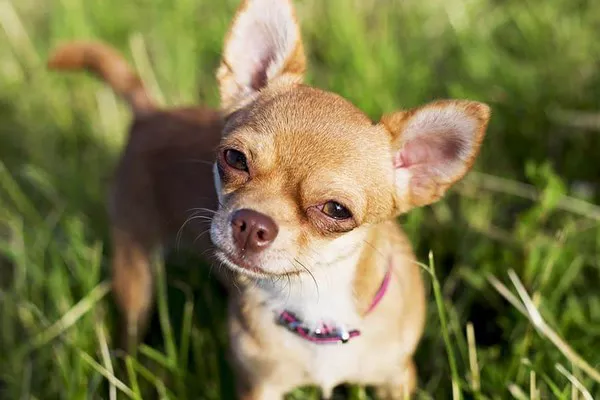Chihuahuas are small dogs with big personalities. They are known for their loyalty and affectionate nature. However, as pet owners, it’s important to be mindful of what we feed our furry friends. While commercial dog food is designed to meet their nutritional needs, many dog owners wonder what human foods can be safely included in their Chihuahuas’ diets. This article explores various human foods that are safe and healthy for Chihuahuas, as well as those to avoid.
Understanding Your Chihuahua’s Nutritional Needs
Before diving into specific human foods, it’s important to understand what Chihuahuas need in their diet.
Essential Nutrients for Chihuahuas
Proteins: Proteins are crucial for muscle development and energy. They help in building and repairing tissues. Chihuahuas need high-quality protein sources, such as lean meats and fish.
Carbohydrates: Carbohydrates provide energy. They are essential for daily activities. Healthy carbs can be found in vegetables and whole grains.
Fats: Healthy fats are important for skin and coat health. They also provide concentrated energy. Omega-3 and Omega-6 fatty acids are beneficial for Chihuahuas.
Vitamins and Minerals: Vitamins and minerals support overall health. They help in maintaining a strong immune system and promoting healthy growth. A variety of fruits and vegetables can provide these essential nutrients.
Water: Fresh, clean water should always be available. Proper hydration is key to your Chihuahua’s health.
Safe Human Foods for Chihuahuas
Now, let’s explore human foods that are safe and beneficial for Chihuahuas.
Lean Meats
Chihuahuas can benefit from lean meats, which provide essential proteins.
Chicken: Cooked, skinless chicken is a great source of protein. Avoid seasoning, as some spices can be harmful to dogs.
Turkey: Similar to chicken, turkey is also a lean protein. Make sure it is cooked thoroughly and does not contain any additives.
Beef: Lean cuts of beef can be given to Chihuahuas. Ground beef is also a popular option, but it should be cooked and drained of excess fat.
Fish
Fish is another excellent source of protein and healthy fats.
Salmon: Cooked salmon is rich in Omega-3 fatty acids. It helps in maintaining a healthy coat. Ensure that the fish is boneless and thoroughly cooked.
Sardines: These small fish are also a good option. They are packed with nutrients and can be given in moderation.
Fruits
Fruits are not only tasty but also provide essential vitamins.
Blueberries: Blueberries are rich in antioxidants. They can be given as a treat or added to their meals.
Bananas: Bananas are a good source of potassium and vitamins. They can be given in small pieces.
Watermelon: Remove the seeds and rind before giving watermelon to your Chihuahua. It is hydrating and low in calories.
Apples: Apples are a good source of vitamins A and C. Remove the seeds and core before feeding.
Vegetables
Vegetables provide essential nutrients and are low in calories.
Carrots: Raw or cooked carrots are crunchy and rich in beta-carotene. They can be a great snack.
Green Beans: Cooked green beans are low in calories and high in fiber. They can be added to meals.
Sweet Potatoes: Cooked sweet potatoes are a nutritious option. They are high in vitamins and fiber.
Peas: Green peas are also a good source of vitamins and can be mixed into their food.
Grains
While dogs do not require grains, they can be included in moderation.
Brown Rice: Cooked brown rice is a good source of carbohydrates. It is easy to digest and can be added to their meals.
Oatmeal: Cooked oatmeal is rich in fiber and can be beneficial for digestive health. Make sure it’s plain and cooked.
Dairy Products
Some Chihuahuas can tolerate dairy products, but moderation is key.
Plain Yogurt: Plain, unsweetened yogurt can be a source of probiotics. It can aid digestion.
Cheese: Small amounts of cheese can be a tasty treat. Opt for low-fat varieties and monitor for lactose intolerance.
Foods to Avoid
While there are many safe foods, some human foods can be harmful to Chihuahuas.
Toxic Foods
Chocolate: Chocolate contains theobromine, which is toxic to dogs. Even small amounts can be dangerous.
Grapes and Raisins: These can cause kidney failure in dogs. It’s best to avoid them completely.
Onions and Garlic: Both can damage red blood cells and lead to anemia.
Avocado: Avocado contains persin, which can be harmful to dogs in large amounts.
Macadamia Nuts: These nuts can cause weakness and lethargy in dogs.
Xylitol: This artificial sweetener is extremely toxic and can lead to insulin release, causing hypoglycemia.
High-Fat Foods
High-fat foods, like fried foods and fatty meats, should be avoided. They can lead to obesity and pancreatitis.
Serving Sizes and Frequency
When introducing human foods to your Chihuahua’s diet, moderation is key.
Portion Control: Treats and human foods should not make up more than 10% of your dog’s daily caloric intake. The remaining 90% should come from balanced dog food.
Frequency: It’s best to introduce new foods one at a time. This allows you to monitor for any adverse reactions.
Consult a Vet: Before making significant changes to your Chihuahua’s diet, consult with a veterinarian. They can provide guidance based on your dog’s specific needs.
See also:What Does a Siberian Husky Eat
Conclusion
In conclusion, many human foods can be beneficial for Chihuahuas when introduced in moderation. Lean meats, certain fruits and vegetables, and whole grains can enhance their diet and provide essential nutrients. However, it’s crucial to avoid toxic foods and high-fat options that could harm their health.
Always monitor your Chihuahua’s reaction to new foods and consult with a veterinarian if you have concerns. A balanced diet, combined with safe human food options, will keep your Chihuahua healthy and happy. Enjoy sharing your meals with your furry friend, knowing you’re providing them with safe and nutritious choices!
Related topics:
What Is the Best Food for Huskies?


